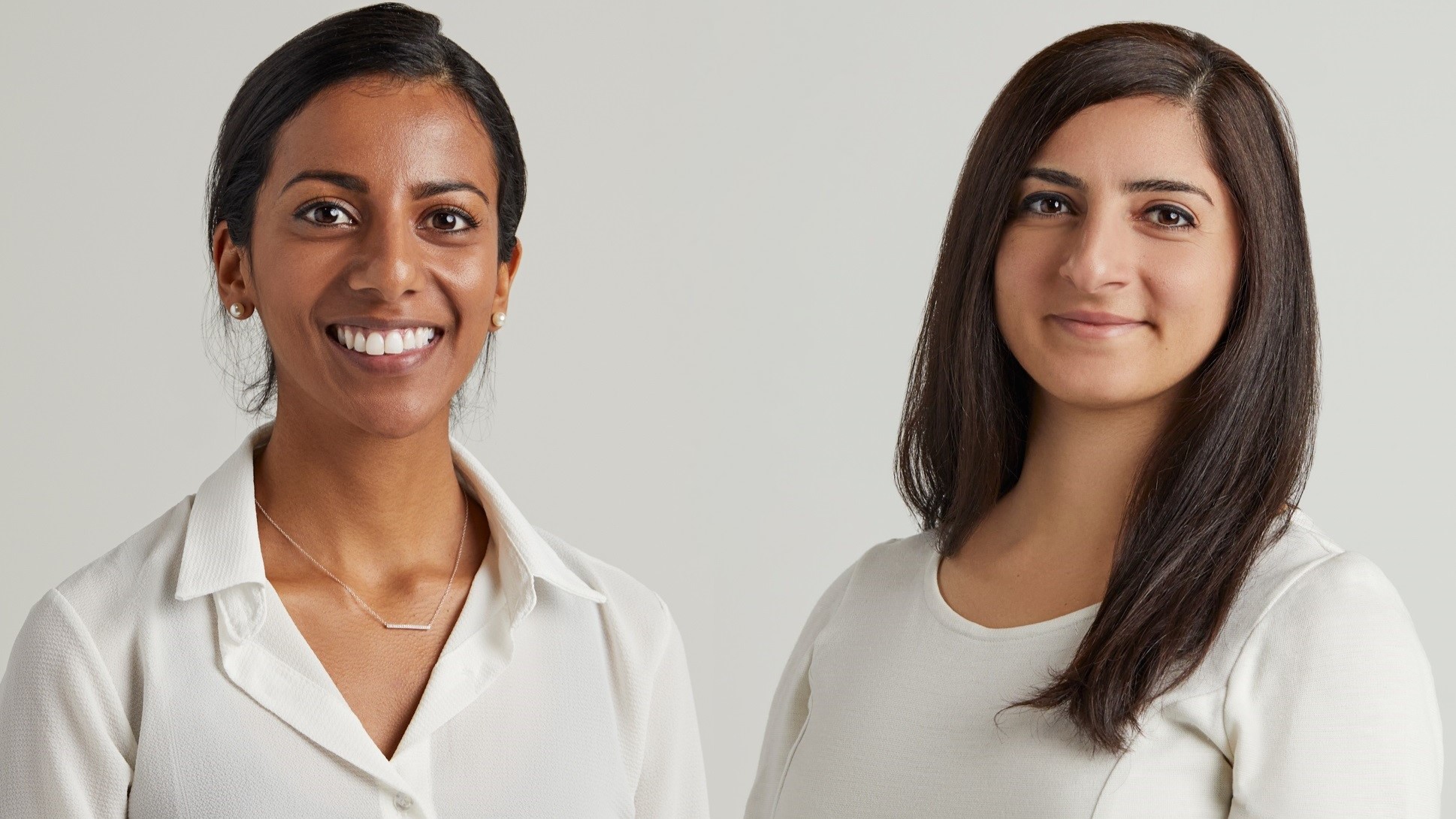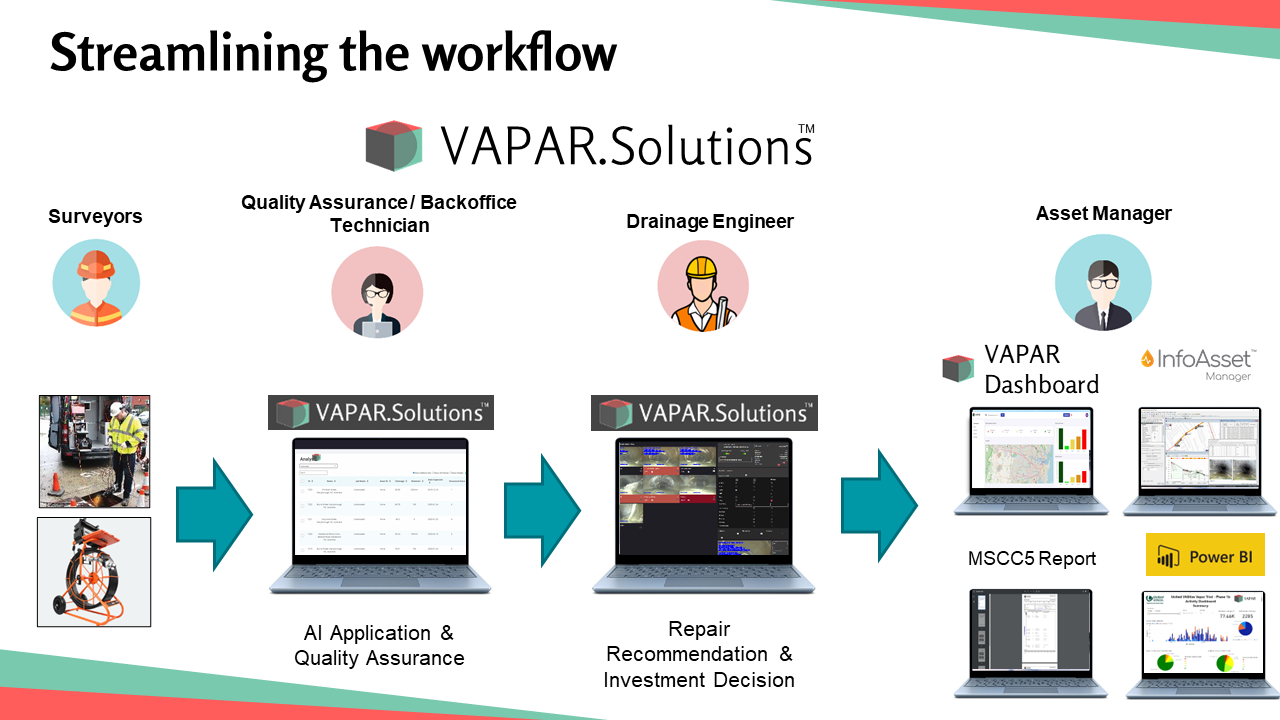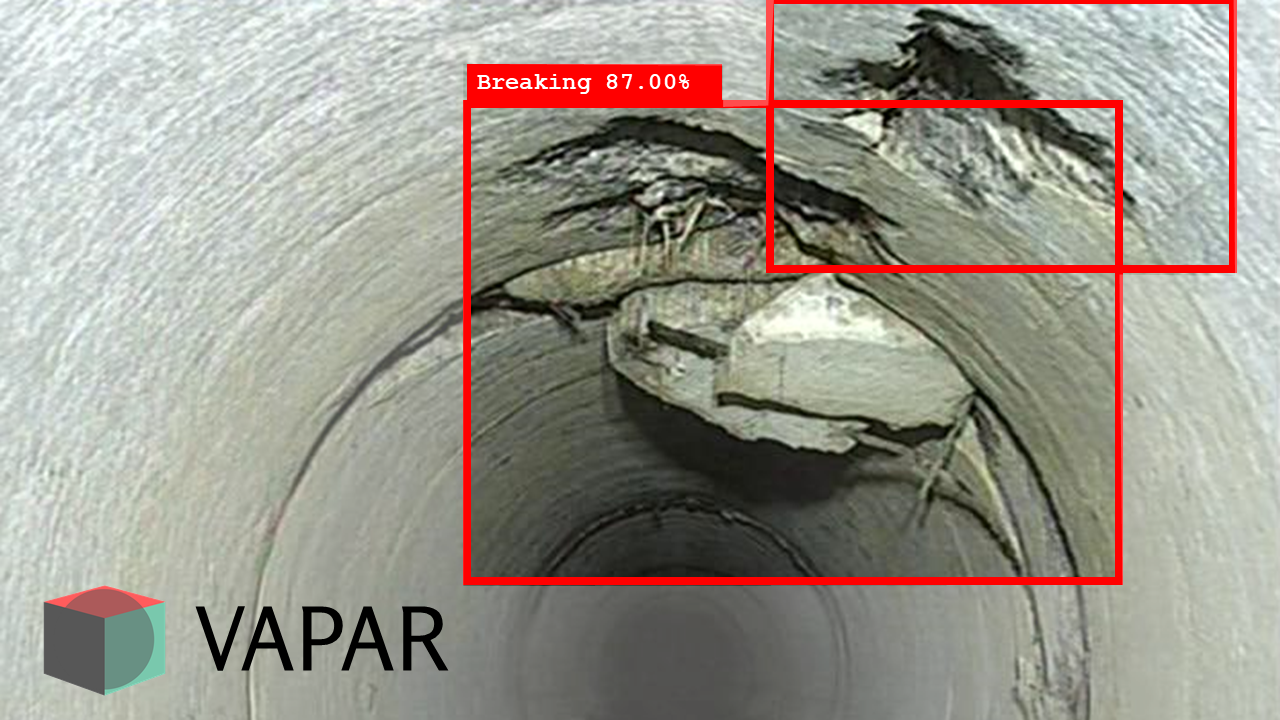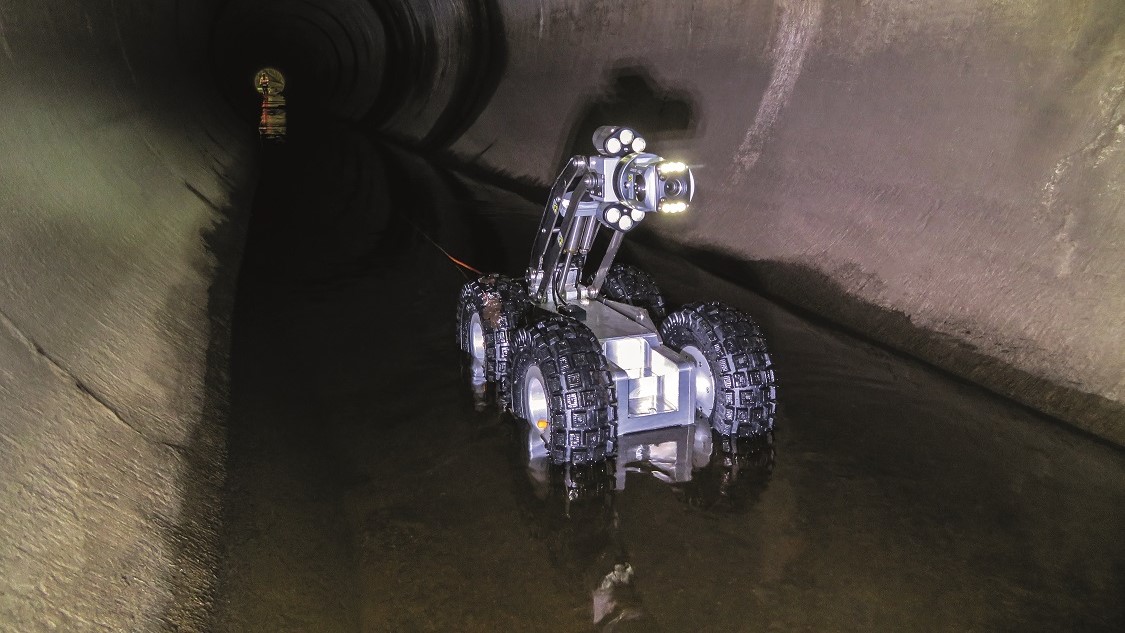For decades the ‘science’ of pipeline inspection using CCTV has relied not just on good quality video capture equipment but also upon highly trained, skilled and experienced personnel.
As the traditional inspection proceeds, these operators view the imagery live, stopping the process every time they see what may be a pipe defect. Using their experience, they then have to judge what type of defect it is enter manually the defect code and any other information they feel may be relevant. This can be a very time-consuming process, limiting the amount of surveying that can be achieved in one shift.
Now, however, modern computing capabilities can accelerate this process considerably as can be seen with the AI Software Platform now available from Australia-based VAPAR Innovation Pty (VAPAR).

Development
Started by two young engineers in Sydney, Australia, VAPAR has developed an Artificial Intelligence (AI) Platform that can accelerate the survey-to-decision-making process around pipeline management. The platform is designed around a collaborative intelligence approach that blends AI and human engineering inputs to allow sewer inspections and investment decisions to be completed in days, not weeks. In this way it can provide the fastest way to the correct asset investment decision for sewers and drains.
Using experience of pipeline surveying and modern computer techniques, the AI Platform was developed using historical data from numerous existing surveys to ‘educate’ and ‘populate’ the AI software with the necessary information that allows it to recognise, highlight and categorise pipeline defects automatically. The Platform also recommends suitable repair options for an Engineer to confirm, from the various options currently available both traditional and trenchless.
As part of the development process, VAPAR submitted the AI Platform idea to UK-based water company United Utilities’ ‘Innovation Lab’ in 2019. Innovation has been a core value at United Utilities (UU) for many years, with the objective of making services better, safer, faster, and cheaper for customers. Establishing the water industry’s first ‘Innovation Lab’ provided the mechanism for UU to present customer challenges and allowed ideas to be submitted from across the world.
The collaborative partnership between UU and VAPAR, facilitated by the Innovation Lab, allowed the AI platform to be tested in a live operational environment and gain insightful feedback. This led to VAPAR being awarded a multi-year contract by United Utilities in 2022.
The success of the UU/VAPAR collaboration has also led to a technical partnership between UK-based CCTV manufacturer Minicam and VAPAR which is exploring vertical integration between the AI Platform and CCTV hardware to generate additional time and financial efficiencies.

The Process
Using the AI Platform as a primary analysis tool for CCTV video footage eliminates the need for the traditional stop/start methodology of current surveys. More survey footage is delivered in a single shift by allowing the camera to continuously progress through the pipeline being inspected and it reduces the need for a highly qualified and experienced operator on site.
Once the video footage has been collected, it is transferred to the VAPAR Cloud Storage facility where it is analysed by the AI Platform, highlighting and coding any observed defects using the coding system for the appropriate region. The footage is then available to a human engineer for checking to ensure the coding is correct. The proposed potential project solutions, if any are required, are also available to the engineer enabling a faster and consistent solution decision. Within the process, the client’s engineer still has the final decision with the data presentation enabling consistent investment decision-making regarding any repair/replacement recommendation.
At the time of writing, the accuracy and productivity of the AI system, which has developed over time, shows the percentage of AI-identified images has now increased from its initial 54% to 91% currently. This improvement was achieved through an ‘Explainable AI’ solution, data visibility, and learning how to work with the AI outputs. This has largely been thanks to the work completed within the UU Innovation Lab environment, the live environment this has made available and the feedback thereby obtained. As the system continues to develop and efficiencies improve further, this accuracy is also expected to continue to increase accordingly.
Stakeholders are now using the data from VAPAR’s AI Platform to optimise their routine maintenance processes further. For example, they can now focus the engineer’s time on assets with a poor condition or which could not be surveyed, where previously all surveys had to be looked at. Furthermore, access to central inspection data has allow the routine maintenance to be optimised and reduce the volume of cleansing by 20%.

Benefits
The work that VAPAR has undertaken within the UU Innovation Lab structure has demonstrated that the AI Platform can deliver real change to business by being able to create value by:
- Reducing contracting costs by eliminating traditional on-site coding requirements, so that more footage can be recorded during a single day’s work.
- Offering a process that allows all CCTV surveys to be coded so providing information to be used for understanding asset health and investment planning. Currently, many reactive CCTV surveys are not coded.
- Having all data stored in one location, which enables engineers to understand asset health better and to enable improved contract management by having greater visibility of the contractor’s performance.
- Allowing the time between survey completion and any investment decision to be completed in days, not weeks. This removes the need for long planning lead times and their associated cost, plus it reduces the probability of repeat flooding or pollution events.
- Reducing the need for specialist skills in the field, with these skills applications now being focused and completed off-site.
- Optimising planned cleansing programme frequencies by approximately 20%, by not cleaning serviceable pipes, without impacting flooding and pollution performance.
The AI Platform has also enabled the successful deployment of proactive inspections which has led to the technology being used for reactive inspections. In UU’s case, this has included the processing of some 17,000 historic reactive inspections in 12 days to inform the UU’s PR24 business case.
Future Outlook
Given that current estimates are that some 12 million kilometres of gravity sewer and drainage pipe exist worldwide, and that this length is continually increasing as populations increase, these assets will likely be inspected and surveyed several times over their lifetime. This has of course led to the advent of the pipe inspection industry, which, like all other industries, is continually looking to deliver a more efficient service. UU and VAPAR have demonstrated that AI and Cloud computing can deliver efficiencies to this industry and VAPAR have already secured contracts with other UK water companies and organisations in Australia and New Zealand. Furthermore, VAPAR is undertaking trials in the United States and with the UK Highways sector.
As with UU’s case of analysing the stored 17,000 inspections, this system could also enable water companies and authorities around the world to update their own asset knowledge to a degree not previously possible with traditional analytical processes.
The ability of VAPAR to reduce both the cost and time to complete pipe inspections makes it economical to inspect more of the sewer and drainage network, providing a better understanding of asset health and how it changes over time. This knowledge enables a more proactive approach to asset management and an improved service to customers and the environment, as well as proactively supporting the investments of stakeholders.
Ultimately, VAPAR’s AI Platform enables companies and their engineers to cost-effectively and efficiently manage the industry’s most precious resource, Time.



